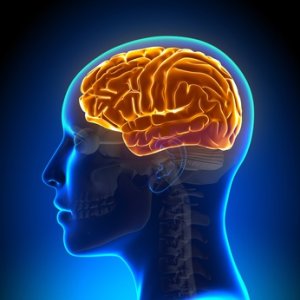B vitamins strengthen your mental health - throughout life
 According to a new study from Melbourne's Swinburne University, supplementing with B vitamins gives you more vitality and surplus in mentally challenging situations, thereby reducing the subjective feeling of stress. The study is the first to use a special technique to reveal the circulatory flow through the brain.
According to a new study from Melbourne's Swinburne University, supplementing with B vitamins gives you more vitality and surplus in mentally challenging situations, thereby reducing the subjective feeling of stress. The study is the first to use a special technique to reveal the circulatory flow through the brain.
The different B vitamins are involved in most of the enzymatic processes in the body and are particularly important for the nervous system, metabolism, blood, digestion, hormones, skin, and hair. Lack of the different B vitamins often occurs in the wake of stress, unhealthy eating habits, and the use of medicine, which may affect the nervous system and the mental functions.
Supplements affect your cerebral blood flow and activity
Swinburne University's Professor Andrew Scholey and his team of researchers conducted two clinical studies of vitamin B supplements. These studies were the first to investigate the effect of B vitamins by means of two special techniques that allow researchers to monitor changes in the cerebral blood flow. Both of the applied techniques showed increased activity in those parts of the brain that are associated with alertness and working memory.
According to Professor Scholey, these new studies support earlier research where it was seen that multivitamin supplementation helps support mental performance and mood. What the new studies also show is that these supplements work by influencing cerebral blood flow and brain activity in the parts of the brain that are responsible for mental functions. Professor Andrew Scholey presented the results from the clinical trials with B vitamins at the Vitafoods conference in Hong Kong.
| Lack of B vitamins often occur as a result of modern lifestyle habits with too much refined food, sugar, stimulants, medicine, and stress. |
Supplementing with B vitamins and omega-3 prevents dementia and Alzheimer's disease
It has been known for quite some time that folic acid (also called vitamin B9), vitamin B6, and vitamin B12 support enzymatic functions that control blood levels of homocysteine. At elevated concentrations, homocysteine acts as a toxin that increases the risk of atherosclerosis and Alzheimer's disease.
Several studies have shown that large doses of B vitamins help to slow down mild cognitive impairment, which is an early stage of dementia and Alzheimer's disease. A more recent study, however, suggests that B vitamins are not effective unless the body is adequately supplied with the omega-3 fatty acids (EPA and DHA) that are found in fish oil.
Supplementing with B vitamins
B vitamins are water-soluble and because they do not get stored in the body we need to consume them regularly. The different B vitamins work as a team in the body, which is why it is always best to take them together as a complex. It is also advised to take several supplements between the main meals in order to obtain the optimal effect.
B vitamins (genuine):
- Vitamin B1 (thiamin)
- Vitamin B2 (riboflavin)
- Vitamin B3 (niacin)
- Vitamin B5 (pantothenic acid)
- Vitamin B6 (pyridoxine)
- Biotin (vitamin B7, vitamin H)
- Folic acid (folate, vitamin B9)
- Vitamin B12 (cyanocobalamin)
References:
Gary Scattergood: Vitamin B clinical trials first to use neuroimaging technology. Nutraingredients.com 2016
http://mobile.nutraingredients.com/Research/Vitamin-B-clinical-trials-first-to-use-neuroimaging-technology
http://www.swinburne.edu.au/news/latest-news/2016/09/swinburne-to-present-at-vitafoods-asia-conference.php
Oulhaj et al: Omega-3 Fatty Acid Status Enhances The Prevention of Cognitive Decline by B-vitamins in Mild Cognitive Impairment. Journal of Alzheimer's Disease. 2016
Omega-3 levels affect whether B vitamins can slow brain´s decline. University of Oxford. Health and News.2016
Search for more information...
- Created on .








 Most people are unaware of vitamin C’s key role in mental health and mood. According to a large population study that is published in Frontiers in Nutrition, having higher levels of vitamin C in the blood is linked to a lower risk of depression. The official dietary recommendations for vitamin C only focus on preventing the potentially lethal deficiency disease called scurvy, and things like stress, ageing, stimulant use, overweight, infections, and chronic illnesses can increase your need for the nutrient.
Most people are unaware of vitamin C’s key role in mental health and mood. According to a large population study that is published in Frontiers in Nutrition, having higher levels of vitamin C in the blood is linked to a lower risk of depression. The official dietary recommendations for vitamin C only focus on preventing the potentially lethal deficiency disease called scurvy, and things like stress, ageing, stimulant use, overweight, infections, and chronic illnesses can increase your need for the nutrient.


 "After about one week of taking the Q10 supplement I could feel a huge difference," says 23-year old Alan Piccini, who has been suffering from extreme fatigue and muscle aches ever since he was a child.
"After about one week of taking the Q10 supplement I could feel a huge difference," says 23-year old Alan Piccini, who has been suffering from extreme fatigue and muscle aches ever since he was a child. “Taking capsules with co-enzyme Q10 has freed me of the severe side effects of my cholesterol lowering medicine,” Mrs Franken explains.
“Taking capsules with co-enzyme Q10 has freed me of the severe side effects of my cholesterol lowering medicine,” Mrs Franken explains.